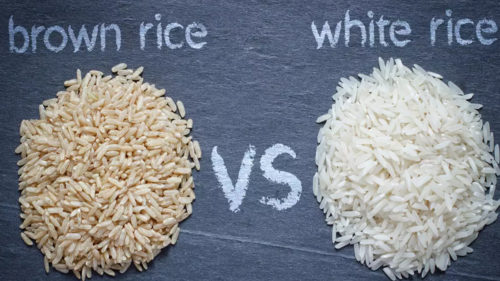Brown Rice vs White Rice: Which is the healthier route?

Across the globe, the consumption of rice as a staple diet has been a way of life for most communities since centuries. Thus, this grain in our diet plays a vital role. Nutritious-wise, rice grain is high in carbohydrates; it has some amount of proteins and contains no fat. While the grain comes in various shapes and colors, the most popular ones are the white rice and brown rice.
Brown has been known to have the maximum amount of nutrition because the bran and germ is intact on it. On the other hand, white rice is considered less nutritious because the hull of the kernel is removed.
Moreover, the most important nutrients for our body are present in differing proportions in brown rice and white rice; some of them are listed below:
- Fiber
A key player in maintaining the digestive system to be functioning properly, this nutrient is highly present in brown rice while it is in a much lower amount in white rice.
- Magnesium
Present in brown rice only, this nutrient is essential for the production of energy in our body along with generating anti-oxidants. A powerhouse for our body, magnesium also helps in bone development and cellular production.
- Phytonutrients
A great source of anti-inflammatory properties, phytonutrients are present in brown rice but not as much in white rice.
- Glycemic Index (GI)
People who suffer with diabetes and insulin are advised not to consume white rice in large quantities. This is because the GI of white rice is high which can be very harmful for them. Thus, brown rice has a very low GI which is beneficial for diabetics as the wholegrain helps them feel fuller and not overeat.
- Proteins
The prevalence of proteins in brown rice helps in making this wholegrain a source of energy along with maintaining the blood sugar levels. While on the other hand, white rice has minimal to almost no source of proteins.
Hence, it is widely accepted that for a healthy lifestyle, brown rice consumption should be more than that of white rice because of the various health benefits it offers for our body.
Disclaimer: This content including advice provides generic information only. It is in no way a substitute for qualified medical opinion. Always consult a specialist or your own doctor for more information.
